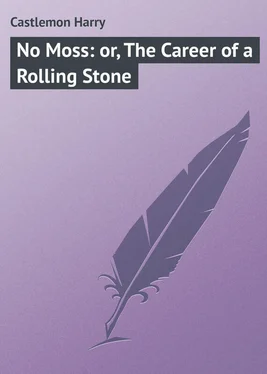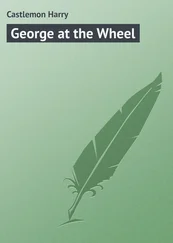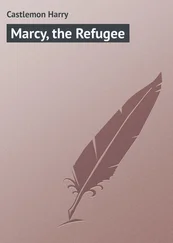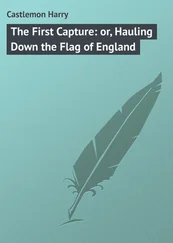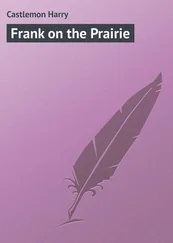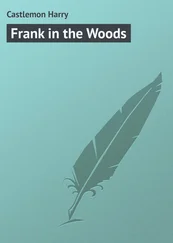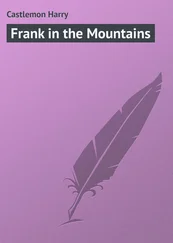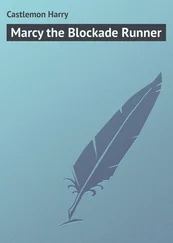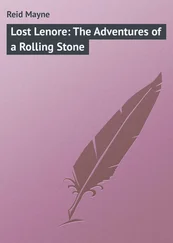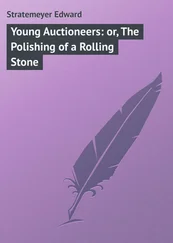Harry Castlemon - No Moss - or, The Career of a Rolling Stone
Здесь есть возможность читать онлайн «Harry Castlemon - No Moss - or, The Career of a Rolling Stone» — ознакомительный отрывок электронной книги совершенно бесплатно, а после прочтения отрывка купить полную версию. В некоторых случаях можно слушать аудио, скачать через торрент в формате fb2 и присутствует краткое содержание. Жанр: foreign_prose, foreign_children, на английском языке. Описание произведения, (предисловие) а так же отзывы посетителей доступны на портале библиотеки ЛибКат.
- Название:No Moss: or, The Career of a Rolling Stone
- Автор:
- Жанр:
- Год:неизвестен
- ISBN:нет данных
- Рейтинг книги:4 / 5. Голосов: 1
-
Избранное:Добавить в избранное
- Отзывы:
-
Ваша оценка:
- 80
- 1
- 2
- 3
- 4
- 5
No Moss: or, The Career of a Rolling Stone: краткое содержание, описание и аннотация
Предлагаем к чтению аннотацию, описание, краткое содержание или предисловие (зависит от того, что написал сам автор книги «No Moss: or, The Career of a Rolling Stone»). Если вы не нашли необходимую информацию о книге — напишите в комментариях, мы постараемся отыскать её.
No Moss: or, The Career of a Rolling Stone — читать онлайн ознакомительный отрывок
Ниже представлен текст книги, разбитый по страницам. Система сохранения места последней прочитанной страницы, позволяет с удобством читать онлайн бесплатно книгу «No Moss: or, The Career of a Rolling Stone», без необходимости каждый раз заново искать на чём Вы остановились. Поставьте закладку, и сможете в любой момент перейти на страницу, на которой закончили чтение.
Интервал:
Закладка:
Tom followed the governor around the cabin, past the spring in which was the water-melon Sam had spoken of, and which he said they would eat when they came down, and presently found himself standing at the foot of a narrow, winding fissure, that led to the top of the cliff. This was one of the holes to Sam's "burrow" – the path of which he had spoken. It proved to be very steep and slippery, and, before they had accomplished half the distance to the summit, Tom was obliged to sit down and recover his breath. The second time he stopped, he found before him a yawning chasm which extended across the path, and seemed to check their farther progress.
"Can you jump it, Muley?" asked the governor.
Now, as the chasm was fully ten feet wide, and Tom could see no chance for a running start, he thought this question entirely unnecessary. No boy who had any desire to live would have thought of attempting to jump it; for, if he missed his footing when he landed on the opposite side, he would fall about forty feet. That was what Tom thought, and that was what he told the governor.
"Well, I have done it many a time," said Sam, "an' I can do it again."
As he spoke, he stepped to a tree beside the path, and began to unfasten a rope which led down from some place above – Tom could not see where, for the bushes that covered the side of the cliff were too thick. Grasping the rope with both hands, the governor stepped back a few feet, then ran swiftly to the brink, and, springing into the air, alighted safely on the other side of the chasm.
"I don't like that way of getting over," said Tom, looking down at the rocks beneath him; "that rope might break."
"I'll risk that," was the reply. "It's strong enough to hold half a dozen fellers like us, an' it is made fast up there to a tree as big around as your body. Ketch it, Muley, an' come on."
The governor let go the rope, which swung back to Tom's side of the chasm, and the latter, with a good deal of trembling and hesitation, prepared to take his turn. He made two or three false starts – stepping back for a short run, as he had seen the governor do, and then suddenly stopping when he reached the brink of the chasm, and thought what would become of him if the rope should break loose from the tree above; but his fear of being laughed at was stronger than his dread of the rocks, and finally he drew in a long breath, and launched himself into the air. Somewhat to his astonishment, he accomplished the feat very easily; and when he found himself safe on the opposite side, he straightened up and looked at the governor as if he had done something wonderful.
Sam fastened the rope to a bush, and once more led the way up the path, which grew steeper and more difficult the nearer they approached the summit. In some places the cliff was quite perpendicular, and the only way they could advance at all was by drawing themselves up by the bushes that grew out of the crevices of the rocks. They reached the top at last, however, and then Sam stopped, and, pointing through the leaves, showed Tom several men at work in a field, and a farm-house in the distance.
"I hooks them fellers' water-melons," observed the governor.
"What if they should discover us now, and come after us?" said Tom.
"Let 'em come. They wouldn't find us, I reckon; an', even if they did, they couldn't ketch us, fur they couldn't get across that gully. But they don't dream of any body's livin' down here, in this dark hole. If they miss their water-melons, they lay the blame on some of the village boys."
Tom did not care to remain long on the cliff, for he was afraid that something might happen to direct the attention of the farmers toward him and his companion, and he had no desire to run a race with any body down that steep path. He might make a misstep, and that would be a calamity, for he would bring up among the rocks at the bottom of the chasm, and there would not be enough left of him to carry out his new idea by the time he got there. But, although it was quite as difficult and tedious a task to go down the cliff as to ascend it, no accident happened to them. They reached the chasm in safety, crossed it with the aid of the rope – this time without any hesitation on Tom's part – and were soon stretched on the grass in front of the cabin, refreshing themselves with the water-melon.
CHAPTER III.
A NEW PLAN
Tom was no less delighted than astonished at what he had seen in the governor's harboring place. The cove was so romantic, and it was so cool and pleasant down there among the rocks and trees! It was a famous place for reflection, and, as Tom stretched himself out on the grass, and looked up at the bluffs above him, he told himself that he would be perfectly willing to pass the remainder of his existence there. What could be more glorious than the life of ease Sam was leading? He had no business to bother him, no father to keep an eye on all his movements, and no merciless village boys to torment him; but he was free from all care and trouble, was his own master, and passed his time serenely in doing nothing. That was just the life that suited Tom. If other boys were foolish enough to allow themselves to be shut up in an academy for ten months in the year, or were willing to drag out a miserable existence within the dingy walls of a store or office, that was their lookout, and not his. He would not do it for any body. He would leave the village before he was twenty-four hours older; and if he ever placed his foot inside its limits again, it would be because he could not help himself.
"Governor," said he, "you always were a lucky fellow. Here you have been during the last two weeks, enjoying yourself to the utmost, and free to go and come when you please, while I have been cooped up in the village, scarcely daring to stir out of my father's sight, compelled to work like a slave for eight hours in the day, and have been badgered and tormented until I have sometimes wished that the earth would open and swallow up Newport and everybody in it, myself included. You must be happy here."
"Well, I should be," replied the governor, "if I only had something good to eat, an' was sartin that Bobby Jennings an' Mr. Grimes would never trouble me."
"You may make yourself easy on that score," said Tom. "Bob Jennings is a thousand miles from here by this time. He has gone to China, and will not be back for three years."
As Tom said this he settled back on his elbow, and proceeded to give the governor a history of all that had happened in the village since the night the Crusoe men made the attack on the Storm King. He told how Harry Green had taken him and the rest of the band to the academy as prisoners of war; repeated what the principal had said to them; explained how Bob had lost his boat, and found a friend in the man who had paid him the forty dollars in gold by mistake; and how he had obtained a berth on board the Spartan, and gone to sea, leaving his mother well provided for. He wound up by dwelling with a good deal of emphasis upon the resolve he had made to pay off Harry Green for what he had done, and hinted, mysteriously, that the first lieutenant would live to regret that he had ever presumed to act contrary to the wishes of Tom Newcombe. Sam could scarcely believe some portions of the story that related to Bob Jennings. He was sure that the fisher-boy had given one of the gold pieces for the Go Ahead No. 2; and, even if he had not, the governor could not understand how a boy so hard pressed as Bob had been – who had more than once been at a loss to know where his next meal was coming from – could resist the temptation to use a portion of the money, especially when he knew that the man who had paid it to him would never be the wiser for it. Sam acknowledged to himself that the truth of the old adage he had so often heard Bob repeat – that "honesty is the best policy" – had been fully exemplified.
Читать дальшеИнтервал:
Закладка:
Похожие книги на «No Moss: or, The Career of a Rolling Stone»
Представляем Вашему вниманию похожие книги на «No Moss: or, The Career of a Rolling Stone» списком для выбора. Мы отобрали схожую по названию и смыслу литературу в надежде предоставить читателям больше вариантов отыскать новые, интересные, ещё непрочитанные произведения.
Обсуждение, отзывы о книге «No Moss: or, The Career of a Rolling Stone» и просто собственные мнения читателей. Оставьте ваши комментарии, напишите, что Вы думаете о произведении, его смысле или главных героях. Укажите что конкретно понравилось, а что нет, и почему Вы так считаете.
